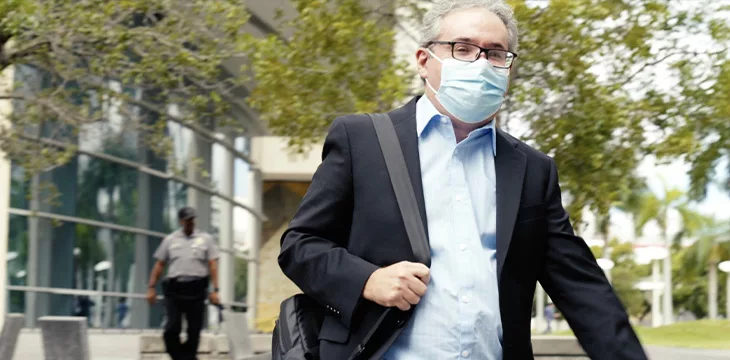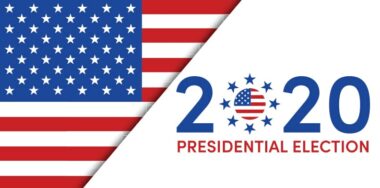Ira Kleiman has lost his appeal in his case against Dr. Craig Wright, meaning that the 2021 verdict—that Dr. Wright invented Bitcoin alone and not in partnership with Kleiman’s late brother—will stand.
The trial originally took place in 2021. Ira was attempting to secure half of the Satoshi Nakamoto fortune by arguing that Dr. Wright had invented Bitcoin alongside Kleiman’s late brother, Dave. He sued Wright in two capacities: one on behalf of the estate of Dave Kleiman and one purportedly on behalf of W&K Info Defense Research LLC, a company supposedly formed between the two to mine Bitcoin and develop related intellectual property. Only it turns out that W&K is owned by Dr. Wright and his family, so after trial when the jury decided that Dr. Wright owed $144 million—not to Dave (or Ira) Kleiman but to W&K, that left Ira Kleiman with precisely nothing to show for his years-long litigation.
With Ira Kleiman losing on all three appeal counts, his involvement in the case should now effectively come to an end.
Kleiman’s appeal
Kleiman argued that the trial verdict should be overturned on three grounds. Firstly, that Judge Bloom erred in instructing the jury on the law on partnerships, arguing that Bloom used an outdated definition for what constitutes a ‘partnership’ that was replaced in 1995 by the Revised Uniform Partnership Act.
Secondly, that Judge Bloom was wrong to overturn sanctions that had been imposed against Dr. Wright by Magistrate Judge Reinhardt. Early in the pre-trial phase, Reinhardt ordered Dr. Wright to produce a list of his Bitcoin holdings as of the time Dave Kleiman passed away. Dr. Wright said this was impossible, as the information was locked in an encrypted file, the password to which was split into 15 ‘slices’. Wright controlled seven of the eight slices necessary in order to access the Bitcoin address information necessary to comply with the order and the final slice would be arriving the following January.
Reinhardt apparently didn’t believe Dr. Wright, levying sweeping ‘deemed fact’ sanctions on Dr. Wright which effectively prejudged that Dr. Wright had a 50/50 partnership with Dave Kleiman and that the plaintiffs had a right to half of the partnership’s Bitcoin. Judge Bloom overturned those sanctions, saying they were ‘improperly imposed’ and said that no other sanctions would be imposed as long as the promised slice arrived as promised. The slice did arrive, and Dr. Wright provided the list of bitcoin holdings.
Thirdly, Kleiman argued that he is entitled to a new trial because Dr. Wright’s lawyers had acted inappropriately during the original trial. Specifically, he said that they had ignored a pre-trial order prohibiting any evidence about Ira Kleiman’s ‘sibling-relationship’ with Dave Kleiman, the lone exception being Ira’s infamous Thanksgiving dinner in 2009 where Dave supposedly told him he was developing Bitcoin with somebody else. He initially tried this argument with the district court immediately following trial, but it was rejected—a rejection Kleiman sought to appeal.
The rulings: Appeal denied
The Court of Appeals rejected all three grounds of appeal this week.
On the first ground, the Court of Appeals ruled that the new 1995 law did not create a new test for partnerships, merely clarified the existing test, and that therefore Judge Bloom’s instructions to the jury was correct.
On the second ground, the Court of Appeals ruled that Bloom was not wrong to overturn the sanctions order, particularly in light of the fact that Dr. Wright’s story about the key slices turned out to be entirely true:
“The district court did not make a clear error of judgment in vacating the magistrate judge’s Deemed Facts sanctions. When the court issued its [sanctions], there was a possibility, however remote, that Wright would soon comply with the magistrate judge’s discovery order and provide the Estate with the information it has requested….So it was reasonable at that time to postpone consideration of sanctions more drastic than an award of attorney’s fees until it become clear whether the Estate would receive a list of Wright’s bitcoin holdings. Then, shortly after the court’s order, Wright in fact produced a list of bitcoin holdings.”
This portion of the ruling will come as something of a vindication for Dr. Wright: that overturned Reinhardt sanctions order is to this day used by Dr. Wright’s other legal opponents in order to attack his credibility despite the fact it was shot down by Bloom. Now, Dr. Wright has an order from the Court of Appeals affirming that not only was that sanctions order erroneous, but that the key slices did unambiguously arrive in January of 2021, which allowed Dr. Wright to produce a list of his Bitcoin holdings—just as Dr. Wright said would happen.
As for the third ground of appeal, the Court of Appeals ruled that though Dr. Wright’s trial lawyers had in some respects overstepped in their questionings of Dave Kleiman’s relationship with his brother, it was the responsibility of the trial judge to decide whether that conduct was sufficiently prejudicial to warrant a new trial—and they had decided it was not.
“The Estate has failed to show that deference to the district court’s decision is not appropriate here,” said the Court of Appeals.
Now what?
The ruling puts to bed any prospect of Ira clawing back some minor victories following his defeat in 2021. Ira will now have to grapple with the years he spent pulling out all the stops for a chance at a gargantuan Bitcoin fortune—something that will sting even harder now that he has seemingly realized that he was cynically being exploited by his lawyers in order to go after Satoshi Nakamoto. It’s over for Ira Kleiman—he will never get the chance to appeal this case again.
In fact, all that is now left to decide is what happens with the $144 million Dr Wright owes to the W&K company. Given that this company is owned directly or indirectly by Dr. Wright and his family, Ira’s involvement with this case has effectively come to an end.
New to blockchain? Check out CoinGeek’s Blockchain for Beginners section, the ultimate resource guide to learn more about blockchain technology.








